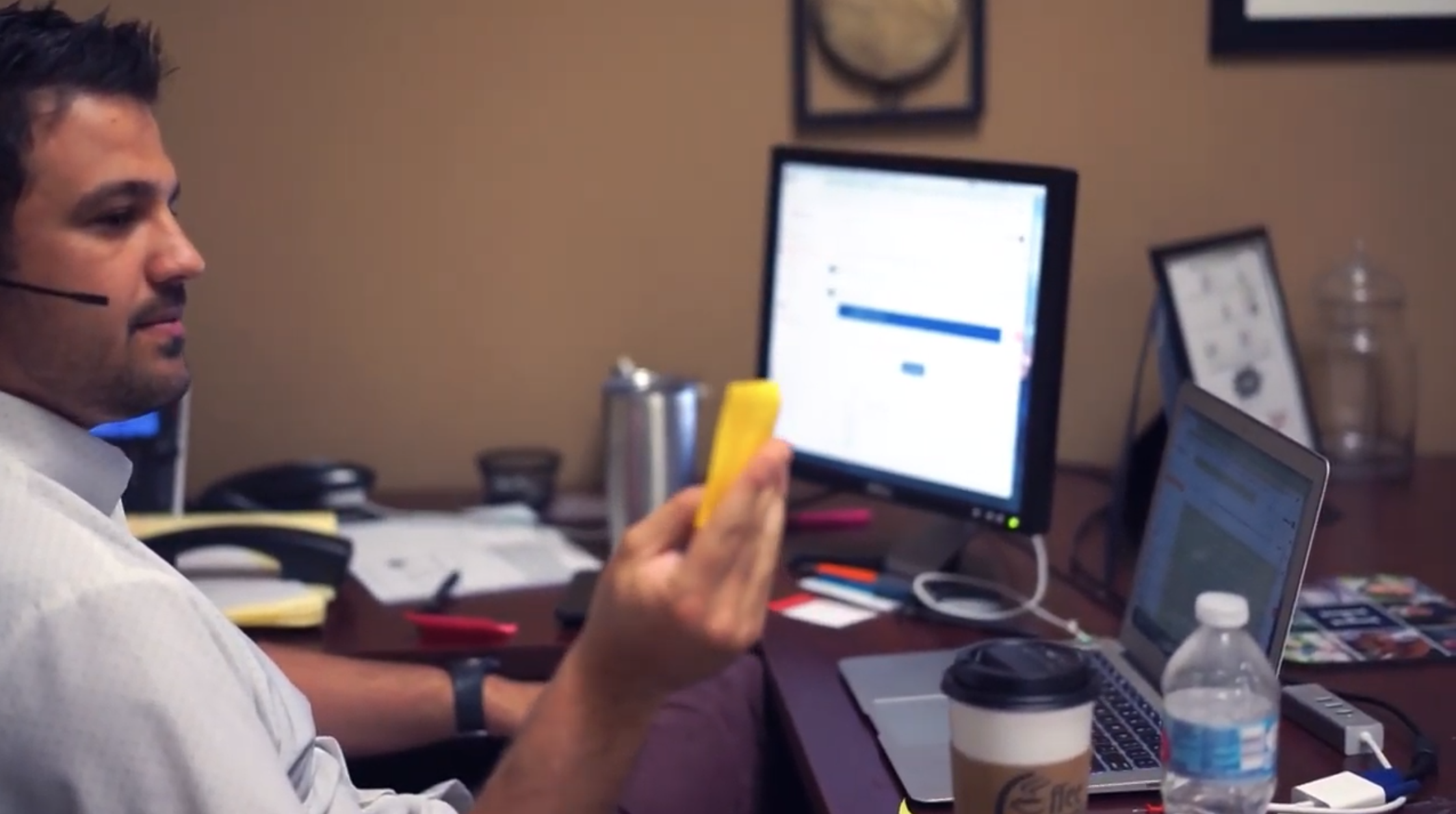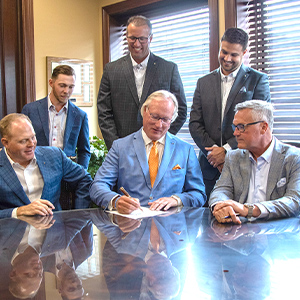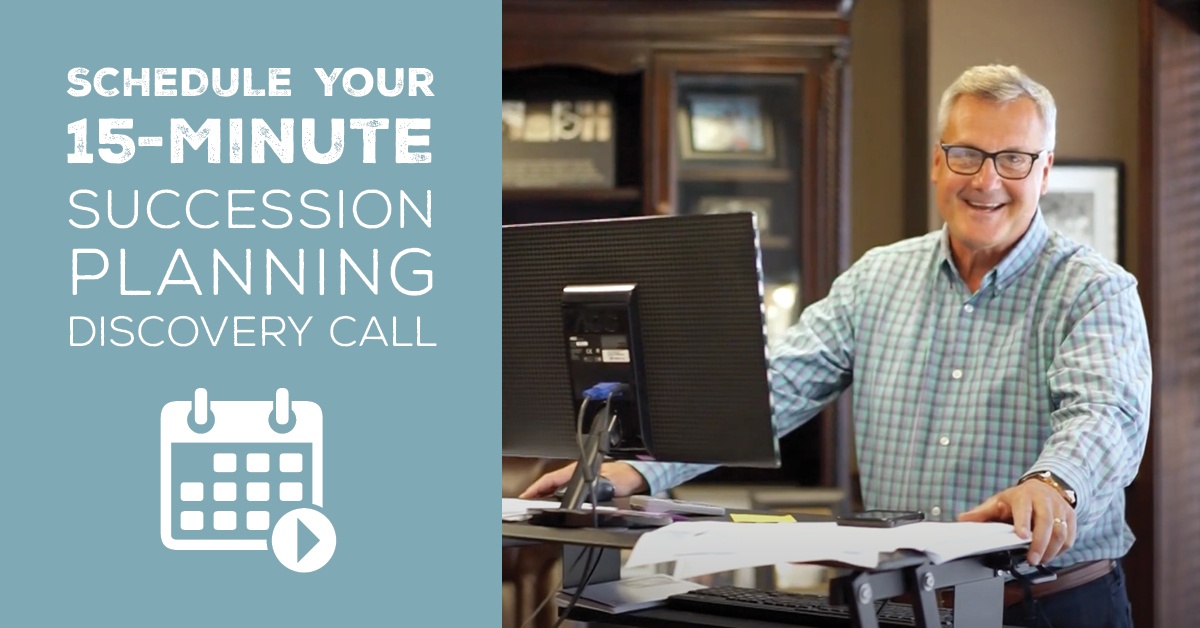Selling your insurance agency doesn't happen overnight. It's a long process, and for most people, they don't really know if they're ready to sell. Even agents in their 70s or 80s are questioning whether they're ready to retire. I get it's a process. It takes years in most cases.
And something a lot of agents may not know is selling doesn't always mean retiring! You can consider a partnership or perpetuation plan that allows you to stay in the business. We can get creative to make this a deal that works for you and your clients.
Whether you're 45 and are having a life change or you're 89 and are finally ready to retire, this is our 7-step process for selling your insurance book of business.
Step 1: Discovery Call
The first step of the entire succession planning process starts with a discovery call. When you're first considering an exit plan, you might be thinking about passing it down to your kids, selling it, or getting a better idea of any other options at your disposal.
If you're thinking about selling, I try to get a feel for what your whole business looks like. And to tell you the truth, I love these calls. I could do them all day long. So don't be shy scheduling yours if you're thinking about selling.

These are some of the questions I ask on a discovery call:
- What's your product mix?
Is it all Med Supp, mostly Med Supp, a mix of Med Supp and Medicare Advantage? What about life insurance or annuity business?
Not all products produce residual income. For example, a book of business that's all Medicare Supplement is worth a lot more than a book that's all annuity.
The Medicare Supplement book of business has recurring income, while the annuity book of business doesn't. Does the annuity business still have value? Absolutely! But does it have as much value as a Medicare Supplement business? No, it doesn't.
- What carriers do you have business with?
I really want to know if you have business with carriers we already work with. That makes the transfer process a lot easier, but nothing is a deal breaker here. We're really just gathering information.
- Who are your uplines?
Do you have business with us or other FMOs? If you do a lot of business with us, we can afford to pay you a higher valuation for your book of business, because we're already earning a small override on your business.
- How do you do business?
Do you go out and see people? Does you have an office? Are people conditioned to go to your office? Do you do any remote selling?
Customers are used to their agent’s process. For example, if they’re used to going to a local office, they’re trained in a way to expect that.
So, if you bought that local book of business and you weren’t local, it’d be a much more difficult buy. That might force you to hire and place a dedicated agent – maybe even get a brick and mortar building – in order to care for those customers.
Again, nothing is off the table for us – we're interested in it all, but this is definitely something we need to be aware of.
- What has your business looked like for the last three years?
It's really common for us to see a declining book of business when people are ready to sell. One of the books we sold went from $117,000 in income to $107,000 to $97,000.
You lose touch with your customers, stop working so much, and you go from treading water to going backwards.
If your book is going backwards and you're starting to lose touch with your customers, I'd really light a fire there and tell you start this process. You are a vital part of the hand-off, and your recommendation means a lot to the customer.
If your customers don't remember who you are because you haven't seen them, the process becomes a lot more difficult. We aren't as confident we can retain that business without your blessing to your customers.
If you have any interest, raise your hand and let's talk! We're open to anything. Simply click the photo below to schedule your discovery call:
Step 2: Face-to-Face Meeting
After a discovery call, I like a face-to-face meeting. If the timeline is more urgent – like in one year or less – I like to sit down and meet that agent wherever they are. We'll travel to you – we want you to get more comfortable with us and vice versa. This gives us all a chance to understand your business a bit deeper.

In this meeting, we'll enter into some sort of a letter of intent. You're not making any commitments or signing anything, but it's like we're dating! We're seriously dating and we start gathering some information.
We also take a look at the contract together to get a feeler for what's involved.
Read More: [Case Study] Everything You Need to Know About Selling Your Insurance Business
Step 3: Nail Down The Specifics of Your Business
After that meeting, we start diving into your business to learn more about the specifics.
We want to see your electronic process and your 1099s from the last three years. If you don't have that, we have to get permission to look in your agent portals and see exactly what you have.
Up to this point, we've been generalizing the numbers and what your business looks like, but at some point, we have to lift up everything and know exactly how much business is on the books.
Step 4: Valuation
When we have access to those hard numbers, we can do a valuation and come back with the offer. The valuation is based on your book of business, but it's also based on how you want to be paid.
You could be paid in a lump sum, over time like a pension, a combination of the two, as-earned... there are a lot of options, and we're even exploring new ways that allow you to stay in the business so it's not like the party is over all at once.
Our offers so far have been very straightforward. Most people want a guaranteed income for a set period of time. Four-five years is common.

That's not to say there won't be some that prefer cashed out. Some people want all of the money upfront. Maybe you want a heavier downstroke of some sort and then a guaranteed income over time. But for most agents that are retiring, they don't care about money upfront. They'd rather have a good valuation and a guaranteed income for as long as possible.
If you're younger and are just changing paths, you may want a lump sum. If you have a health issue, you may want the money right now.
For people that want to transition out and not go out cold turkey, we're putting together new, as-earned models that will allow you to continue working for a few more years.
This is all a negotiation, and we talk about it back and forth until we come to a fair agreement that feels good for both parties.
Step 5: Enter into an official agreement.
Once we agree on the valuation, we put a date on the closing and we go through a final process of about 60 days or so where you agree to have all your commissions assigned over to us at that closing date.
We already have an agreement we use, and you can take that to your lawyer to review it. You may have a small adjustment here or there, and we work on it together until everyone feels really good about it.
Something we've never made a big deal about but we probably should is that we structure this deal so that it's counted as capital gains, not ordinary income. That's an incredible tax advantage for the seller.
Now, when we do it that way, we have to depreciate it out over 15 years. But this has been a way for us to give the seller more value, because doing it this way saves you a lot of money in taxes.
Step 6: Communicating with the customers
We have a process in place for communicating with your customers about the acquisition or partnership.
We touch your customers a lot until they really get to know us and feel really good about the change. We're extremely diligent about getting them to feel confident about the acquisition or partnership.

During this communication phase, we also have the phone number changed over to us, if needed.
If your clients are used to seeing you for the last 20 years, they really like you, and now we're taking over, we have to really do a great job of communicating or we stand to see that business run out the door. So trust us – we're very careful about this step!
Step 7: We take over!
 Last but not least, the close date comes and we take over your book of your business. If we've settled on more of a transition, it wouldn't be that cut and dry, but we do begin the process of getting your customers in our system.
Last but not least, the close date comes and we take over your book of your business. If we've settled on more of a transition, it wouldn't be that cut and dry, but we do begin the process of getting your customers in our system.
And at this point, we treat your customers like we do all of our customers.
We send them email newsletters, we communicate with them 5-6 times per year outside of that via phone calls and mailers. We do their annual reviews every year (unless you're continuing to work the book of business).
We want the customers to love us, and they do!
Conclusion
The thought of selling a book of business you've put your heart and soul into isn't easy. Trust me, I know how hard it is.
But we really try to make the entire perpetuation planning process feel comfortable, and we're coming up with new ways to structure these exit plans to help ease the transition. Just know that selling your book of business doesn't always mean you have to retire.
We're excited to continue sharing information about your options as we continue our journey, but please make sure to schedule a discovery call with me if you haven't already. There's no harm in talking about your business' future, whether you want out today or the transition is years away.
Good sellin'!








